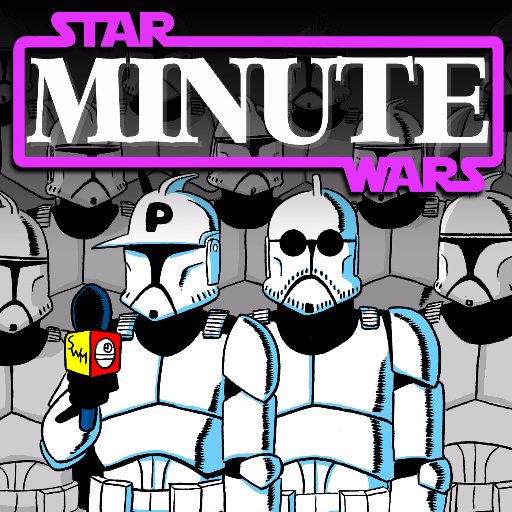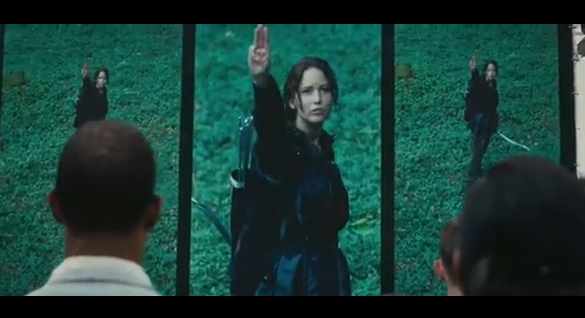Star Wars Minute
Posted by Todd on December 24, 2017 · Leave a Comment
In all the Barry Lyndon-ness of the past week, I’d forgotten that I was also a guest commentator on a whole week’s worth of Star Wars Minute, where I discuss, in staggering detail, my thoughts about minutes 21-25 of Revenge of the Sith. In a weird coincidence, those minutes are probably my favorite in the entire prequel trilogy, so it was a real treat to sit down for five hours or so and chat with Pete and Alex, who are great guys and very kind to a guest who laughs too close to his mike and goes off on too many tangents.
You can catch up on my episodes starting here!
Filed under blogging, movies, screenwriting 101, Star Wars, true hollywood stories · Tagged with movies, screenwriting 101, Star Wars, true hollywood stories
“Urbaniak’s Last Cast”
The actor James Urbaniak, who readers of this blog will know as the voice of Dr. Venture, or as the polygraph guy on Homeland, has been one of my closest friends since I met him on this very date (well, yesterday on this very date) in 1989 at a shoebox theater in lower Manhattan during a blizzard. True story.
Lately, he’s been doing these podcasts, Getting On with James Urbaniak. He emailed me and asked me to contribute a piece, and of course I was happy to do so, and you can hear it here. It turned out pretty awesome.
The assignment was very specific: not a monologue or a rant or a routine, but a monodrama: that is, a drama, with a plot, and conflict, and events occurring, premise, development, crisis, denouement, all that, starring one actor, James, playing a character named “James Urbaniak.” I’m a huge Samuel Beckett fan from way back, and the only thing that popped into my head as a suitable monodrama was an adaptation of Beckett’s Krapp’s Last Tape, where an elderly man, a failed writer, reviews tapes he made of himself when he was younger and wonders about what happened to himself.
So that’s what I did, except I made the elderly writer James. His performance is more than I could have hoped for.
All the events James talks about in the podcast are true stories. James really did audition for the part of Chigurh in No Country for Old Men, he really did do a hit show off-Broadway where he really was too busy to meet Paul Newman, he really did walk the red carpet at Cannes, he really so forth. The only one of the stories that isn’t true at all is the first one, where he auditions for the part of Eugene in The Miracle Worker in high school but loses the part to the school quarterback. That didn’t happen to him, that happened to me, exactly as set down.
He didn’t really do an impression of Mackensie Crook at his audition for the role of Dwight Schrute. Rainn Wilson, to my knowledge, does not have a three-story mansion in Santa Barbara, and James does not live in a crappy bungalow in Eagle Rock.
The cassette recorder referred to in the text was one my family owned in the late 1960s, one very much like these:
Finally, a “frustum” is a truncated pyramid.
Filed under misc, the Urbaniak oeuvre, true hollywood stories · Tagged with misc, the Urbaniak oeuvre
A note on The Hunger Games
Posted by Todd on March 26, 2012 · 36 Comments
A few years ago, I was involved in developing a movie based on a popular series of YA novels, a science-fiction thriller series set in a dystopian future and featuring a female protagonist trying to make her way in an oppressive, brutal society.
Because it was not just one novel but three, it was incumbent upon me to lay out not just one movie but a whole trilogy, describing the arc of the protagonist and her journey from helpless waif to leader of the revolution.
It was a lot of work, but the producer was very pleased with my take and we took it to the studio.
The studio executive we went to see was a very nice, very kind, very intelligent young woman. I pitched to her not one movie but three, I pitched to her for over an hour, laying out a tapestry, a world of intrigue, action, spectacle and personal development.
The studio exec was fascinated and very impressed, and then, at the end of the pitch, said “That’s really great, Todd, you really nailed it, it’s perfect. I’m just wondering — is there some way to make the protagonist a boy?”
I was dumbstruck. No, there was no way to make the protagonist a boy. The books were very much about a female perspective on this strange futuristic world — the two were inseparable. You literally could not tell the same story with a male protagonist.
But the studio exec explained, “We can’t make a movie with a female protagonist. Boys won’t go to see it.” She also explained that girls won’t go to see science fiction movies, or action movies. I explained to her that one recent movie franchise — Pirates — very much had a female protagonist and had done very well indeed, that another franchise — The Terminator — also had a female protagonist and had done very well indeed, that another franchise — Alien — was also a futuristic sci-fi series with a female protagonist, and had done very well indeed.
The studio exec’s hands were tied. Word had come down from above, “No big-budget movies with female protagonists.” The only movies that could be made with a female protagonist were intimate personal dramas and romances — that is, cheap movies.
My guess is that today, this very day, in offices all over Hollywood, studio executives are still telling writers “We don’t make science-fiction movies with a female protagonist.” And when the writer says “But what about Hunger Games?” they will make an excuse — “Well, but that’s The Hunger Games, it’s a phenomenon, it’s its own thing, you can’t hope to repeat that.”
Filed under movies, true hollywood stories · Tagged with
My Iron Man
Posted by Todd on May 2, 2008 · 38 Comments
After working on Astroboy and Wonder Woman, for many years I was “on the list” of writers consulted for every comic-book movie that came down the pike.
When the Iron Man people asked me for a take on their then-aborning project, I took a jaunt to my local comic-book store to look for source material. This was quite a few years ago now, and, as hard as it is to believe, there was almost no Iron Man material in the stores. The only readily-available collection was The Power of Iron Man, an important, ground-breaking story arc that dealt mainly with Tony Stark’s alcoholism.
So I said “All right, whatever you say. Alcoholic superhero. Let’s go.” This is the pitch I came up with:
Tony Stark is an arms manufacturer. He’s a heel and a creep, but somewhere deep inside he’s still human. He brings death and destruction to the world, and it’s beginning to corrode his soul. He turns to alcohol to dull the pain. Caught in the jaws of the capitalist beast, he can only press forward and continue producing death. He has responsibilities to his corporation to keep moving forward, but he’s cracking under the strain and alcohol, he thinks, will hold him together.
His alcoholism progresses to the point where he starts having blackouts. What he doesn’t know is that, when he is blacked out, he becomes Iron Man. Iron Man is, essentially, Tony Stark’s conscience, fighting against the very machine that Tony operates in his non-blacked-out hours. Iron Man works as hard to dismantle Tony’s company as Tony does pressing its agenda. Tony even gets the idea to create War Machine, a “waking Tony” creation designed to fight Iron Man, never realizing that he is, himself, in fact, Iron Man.
So I thought “Well, an alcoholic superhero, I don’t think we can sell that to an audience, but a superhero who is his own supervillain, we haven’t seen that yet.” And I pitched my take to the producer who had sent me The Power of Iron Man and his instant reaction was “Are you crazy? We can’t make a movie about an alcoholic superhero!” And that was the end of that.
(The idea of an alcoholic superhero, of course, didn’t seem so outrageous to the producers of Hancock.)
So they went and made an Iron Man movie without me, and it turned out very well. Tony drinks a lot in the movie, but they never point to it as a “problem,” which I think is the correct approach. The plot coincides with my pitch insofar as it hinges on Tony’s growing realization that he is not making the world a better place by manufacturing ever-more sophisticated weaponry. He doesn’t become schizophrenic, rather, he fights Obidiah Stane, his corporate officer and gets bounced out of his own company. It’s a lot of the same ideas, but more elegantly and organically presented. As far as superhero movies go, it’s pretty sophisticated stuff and a cracking good time. It is both a geek-fest and a good “entry point” movie: it’s filled with Marvel in-jokes but also manages to stake out its own identity. This is all very hard for a hugely-expensive movie to do, which makes Iron Man all the more impressive.
The crowd for the screening I attended was more pumped for this movie than I’ve heard a crowd be pumped for a movie in a long time. They hooted and hollered, shouted and sang as the lights went down. The only thing that got them more excited than Iron Man was the trailer for The Dark Knight which received cheers and a round of applause. Iron Man completely delivered to this crowd, a movie about a gearhead, made by gearheads, for an audience of gearheads. I mean that as a compliment.
I would say to be sure to stay until after the ending credits, but if you’re the sort of Marvel Geek who is rushing out to see the movie today you probably already know that.
Filed under Avengers, comics, Marvel, superheroes, true hollywood stories · Tagged with Avengers, comics, Marvel, movies, superheroes, true hollywood stories







